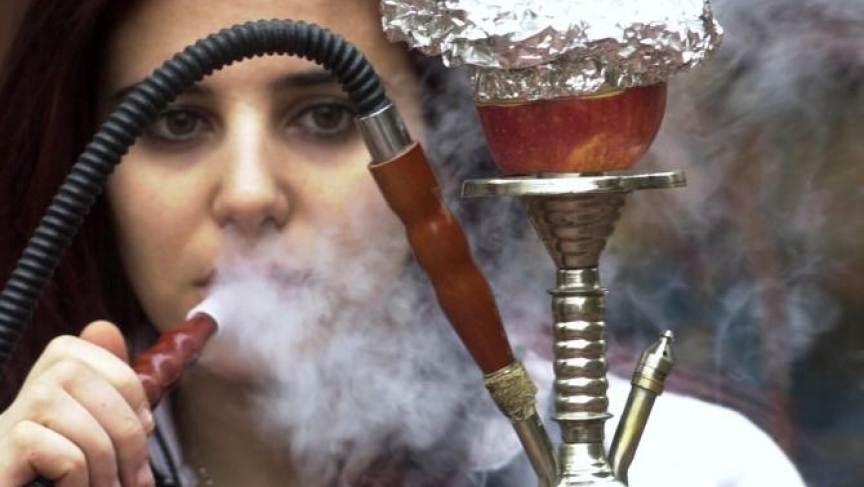Source: Thailand Medical News Jan 17, 2020 6 years, 3 weeks, 6 days, 2 hours, 27 minutes ago
Researchers found for the first time, in a study conducted in mice, that tobacco smoke from a
hookah caused blood to function abnormally and be more likely to
clot and quickly form
blood clots, which can increase the risk of
heart attack or
stroke, according to new research published today in the American
Heart Association's journal Arteriosclerosis, Thrombosis and Vascular Biology (ATVB).

Medical researchers found that tobacco smoke from a
hookah caused
blood clots to form within an average of about 11 seconds, compared to an average of 5 minutes for clotting without exposure to
hookah smoke. Exposure to the
hookah smoke also caused other abnormalities related to the way the blood flows.
Dr Fadi Khasawneh, Ph.D., Associate Professor and Chair of Pharmaceutical Sciences at The University of Texas at El Paso told
Thailand Medical News, "
Hookah smoking, which is becoming more popular in Western countries, is perceived as less harmful than cigarettes, yet
hookahs carry a toxic profile that is thought to be comparable or to even exceed that of traditional cigarettes. Some studies have found that the smoke emitted from one
hookah tobacco smoking episode contains significantly more harmful chemicals compared to a single cigarette."
Typically,
Hookah, also known as waterpipe smoking, is a unique method of smoking tobacco. It consists of a head (which holds the tobacco), a body, a chamber filled with water, a hose and a mouthpiece. Charcoal briquettes are used to "burn" the tobacco.
For the research, the team exposed mice to
hookah smoke from a smoking machine that mimicked real-life smoking habits. The smoking machine used 12 grams of commercially available, flavored tobacco that included tobacco, glycerin, molasses and natural flavor with nicotine and tar.
Researchers then compared platelet activity among the exposed vs. the unexposed mice.
The research simulated the type of nicotine exposure that occurs with
smoking a hookah, which the researchers verified by measuring the levels of cotinine, the nicotine metabolite.
Dr Khasawneh added, "Our findings provide new evidence that
hookah smoking is as unhealthy if not more so than traditional cigarettes. Smoking a
hookah, cigarettes, e-cigarettes or other forms of tobacco all increase your risk for
heart disease and
stroke."
The American
Heart Association in May 2019, published a Scientific Statement, "Water Pipe (
Hookah) Smoking and Cardiovascular Disease Risk," to analyze available research on the health effects of
hookah smoking
gt;. The Statement notes that hookah smoking results in inhaling significant levels of toxic chemicals such as carbon monoxide and particulates from tobacco that can harm blood vessels, the heart and lungs, as well as creating a dependence on nicotine.
Dr Aruni Bhatnagar, Ph.D., Chair of the Scientific Statement writing group further added, "This study provides additional evidence that, contrary to popular belief, hookah smoking adversely affects cardiovascular health. From 2011 to 2015, the number of United States-based waterpipe establishments is estimated to have more than doubled, and interest has grown among both teens and adults. Although the tobacco industry has found novel ways to popularize and increase the use of new products, studies like this highlight the high risk of hookah smoking."
Reference: Short-Term Exposure to Waterpipe/Hookah Smoke Triggers a Hyperactive Platelet Activation State and Increases the Risk of Thrombogenesis, Ahmed B. Alarabi, Zubair A. Karim, Jean E. Montes Ramirez, Keziah R. Hernandez, Patricia A. Lozano, José O. Rivera, Fatima Z. Alshbool, Fadi T. Khasawneh , Originally published16 Jan 2020, Arteriosclerosis, Thrombosis, and Vascular Biology. ;0:ATVBAHA.119.313435, https://www.ahajournals.org/doi/suppl/10.1161/ATVBAHA.119.313435.
